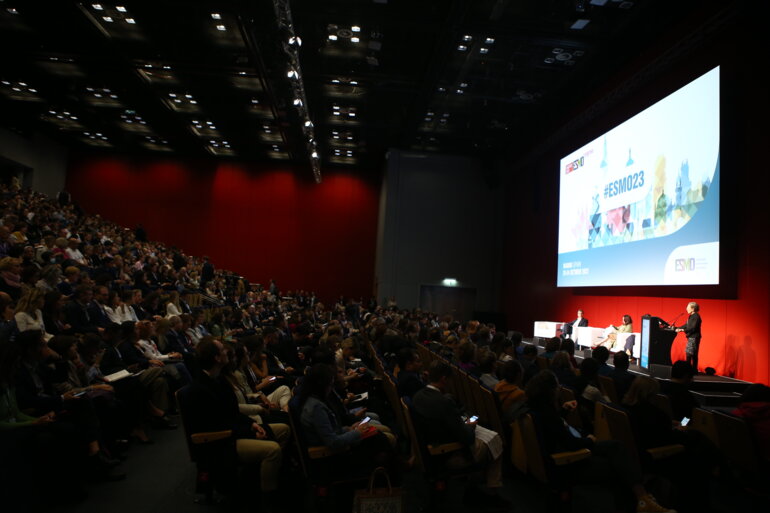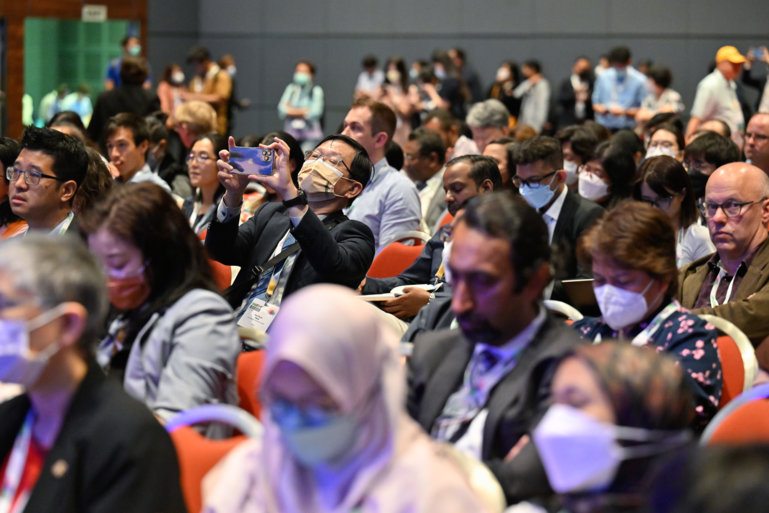Tailored strategies based on existing technologies and digital tools are needed to help inform people in geographically difficult-to-reach communities
The consequences of tobacco use remain leading causes of disease and death around the world. Despite the enormous amounts of effort and money that have been poured into educating people about the dangers of tobacco use, the implementation of tobacco cessation strategies, from awareness to risk factors and early detection capacity, is still a challenge due to geographic barriers.
This is particularly problematic for some areas in South Asia, and the failure of cancer prevention among isolated communities and relatively insular tribal populations is illustrated well by a study presented at ESMO Asia Congress 2022. The study involved an 8-year follow-up of 2,185 participants from remote tribal populations in Tamil Nadu, India, looking at tobacco usage and the participants’ awareness of its link with cancer (Abstract 233P). The investigators found there was a high rate of tobacco usage, in the form of both smoking and smokeless tobacco products, and its use was linked to oral mucosal lesions (47%) and oral cancer (7%). Also, participants were shown to have a general lack of awareness of the oral health risks of the tobacco products they were using. The study findings on smokeless tobacco use – 39% of tobacco users chewed raw tobacco and 33% chewed commercial chewing tobacco – are in line with the recently published International Agency for Research on Cancer (IARC) Perspective on Oral Cancer Prevention, which identified smokeless tobacco as being a huge neglected risk factor for oral cancer in South Asia (N Engl J Med. 2022;18 Oct).
The study conducted by Francis and colleagues in India highlights the need to engage geographically difficult-to-reach populations in effective education about the risks of tobacco usage and to provide effective support strategies to encourage individuals to stop using these products. But how should we do this? Communication strategies reframed in response to COVID-19 provided elements for novel organisational innovation agendas and might hold part of the answer. Today, access to the internet is widespread, even in difficult-to-reach and underprivileged communities, and e-health interventions have been used for health-related issues by populations in geographically remote regions in China (J Med Internet Res. 2019;21:e12693). However, in scenarios where the internet is not available, TV, radio and mobile phones can be utilised to disseminate health information. In this respect, there is evidence that mobile health (mHealth) has an impact in supporting cancer screening among individuals in rural and remote communities in India (J Glob Health. 2018;8:020421). Additionally, social media is an incredibly powerful tool with a wide reach across different sectors of society, especially during the COVID-19 pandemic. And we know that remote telemedicine clinics, including those for oncology, have been used to good effect in geographically remote areas of the Western world, such as rural Australia and America.
Additionally, social media is an incredibly powerful tool with a wide reach across different sectors of society, especially during the COVID-19 pandemic. And we know that remote telemedicine clinics, including those for oncology, have been used to good effect in geographically remote areas of the Western world, such as rural Australia and America.
There are many lessons we could learn from the COVID-19 pandemic, when the use of existing digital resources and technologies in healthcare dramatically increased, allowing the remote education of people to reduce misconceptions, provide clarification about risks, mitigation strategies like mask usage, and inform about the benefits of vaccine uptake. But how can the scientific community contribute to the social and organisational innovation agenda to spread the best practices developed and employed as a response to COVID-19? Mindful that the mitigation strategies vary according to different cultures, health systems and the geographical challenges raised, the appropriate description and analysis of health, economic and organisational impact outcomes is still an unmet need. This information will likely improve our capacity to spread best practices by guiding and informing stakeholders through evidence-based solutions.
Abstract discussed:
Francis, DL. Cancer awareness, tobacco use and cessation among Malayali Tribes, Yelagiri Hills, Tamil Nadu, India - A 8 year follow up study. ESMO Asia Congress 2022, Abstract 233P
Poster Viewing Session 03.12.2022, Exhibition / Poster Area. Read the e-Poster on the Congress virtual platform.






